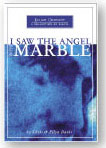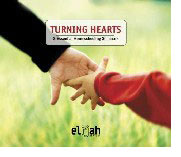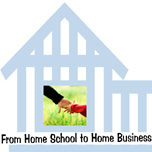 Determining Our Children's Real Needs Determining Our Children's Real Needs
Read past issues of the
e-journal HERE>> Sign up below.
by Ellyn Davis
It is disheartening and somewhat overwhelming to consider the problems confronting us as Christian home educators. We risk misunderstanding from family, friends, and public officials. We assume the cost as well as the responsibility for making sure our children become educated.
But far worse, although we long to give our children the kind of upbringing that would bring them close to the Lord, our own educations have steeped us in a man-centered agenda and equipped us with information and skills that are not necessarily in the best interests of the Kingdom of God. As Marilyn Howshall says in A Lifestyle of Learning:
“Our generation was not taught how to learn and was never given a love of learning. Yet our children are trained with the same methods that failed to teach us to learn or to love learning.
With only the raw material of our fragmented lives to work with, we attempt to integrate our new vision, godly desires, and goals into our old lifestyles and systems. We use the world’s methods to try and produce something they were never designed to produce.”
In our own lives, as we began understanding the different influences on education, God challenged us with a host of questions:
What if we look at education a different way?
What if we start viewing it, not as a commodity, but as an outworking of the convictions and priorities of our family?
What if we see it as part of the “equipping of the saints...for the work of service?”
What if we operate under a different set of assumptions than institutional education? Assumptions like: (1) God has created our particular family unit and given us our particular children because our family has a unique, God-ordained meaning and purpose; (2) God has put (and is putting) in our hearts the convictions and values that make up our family’s unique meaning and purpose; (3) These convictions and values make up the core of the kind of people we want our children to become; (4) Our education of our children reflects these convictions and values; and (5) God will stay actively involved in the process for our children’s sakes.
Recognizing Who Each Child Was Created to Be
Every culture has a certain ideal of what man should be like and it is this ideal that determines how youth are traine¬d. America’s ideal man is a self-actualized wage earner who contributes to the betterment of society, and our educational systems are set up to try and create this ideal. As Neil Postman says in The End of Education, “...public education does not serve a public.” It creates a “public” that wants to “earn more, buy more, worship technology, and cling to their ethnic differences.” But what is our ideal man or woman? What kind of people do we want our children to become? More to the point, what kind of people does God want our children to become?
We suggest you imagine each child's graduation from high school (or leaving home). What do you want that child to know? What skills do you want him/her to have learned? What kind of a relationship do you want to have with that child? What kind of relationship do you want the child to have with God? What attitudes? What would it take for you to be able to say, “We’re done!” What would it take to look back with few regrets about how you spent the years that child was in your care? What would it take for the Lord to say, “Well done, good and faithful parents!”
God made each of our sons and daughters and created them with a life purpose. Our job as parents is to uncover this purpose and to equip each child with the skills, tools, and information to fulfill it. If we start with the end and work backwards, we have a better idea of the path to follow. If children are, as the Bible says, “arrows in the hand of a war¬rior,” then what is the target at which we are aiming? What is the battle for which we are preparing?
Recognizing who each child was created to be is an ongoing process, but there are certain attitudes and skills that are essential to succeeding in a changing world.
Think about what really determines success in life. We live in a world where we can no longer count on job security, a support network of family and friends, strong spiritual ties, or education guaranteeing prosperity (or even guaranteeing a job). What are the qualities of strong, capable, productive adults? What gives meaning and purpose to life? What are the attitudes, character qualities, and knowledge the Bible says are important to have?
Each family’s answer to these questions will be different, based on the family’s values and convictions.
We believe that God placed our children in our family (and not in yours) because our family has a unique reflection of the Kingdom of God and we are the only ones who can impart that reflection to our children. Your family’s reflection will be different from ours, your picture of your children’s future will be different, and therefore the way you educate your children will be different.
When we begin thinking of home education as an extension of God’s purpose for our family, we realize that before we can determine our “educational philosophy,” we need to get in touch with our family’s unique vision and purpose. This is not something that can be done overnight, but we can begin asking ourselves questions like: “What is the purpose of our family?” “What kind of family do we want?” “What are the things that are truly important to us as a family?” “What unique interests, concerns, talents, or abilities has the Lord given us?” “What guiding principles do we find ourselves living our lives by?”
Developing An IEP
IEP is educational jargon for Individualized Educational Plan. What this means is that a specific educational plan is developed for each child. In an institutionalized school setting, IEPs are often reserved for children with learning difficulties so that their progress can be charted in areas such as reading or math. This is not the kind of IEP we think home schoolers need. The kind of IEP we recommend is one that helps you assess your children’s strengths and weaknesses in the areas of competence your family believes are important.
What areas should we use to assess the strengths and weaknesses of our children? Over the years we have concluded that there are three areas of competence that are vital to becoming strong, capable, effective, and productive adults, and that are essential to effectively fulfilling any future role our children may have. These three areas of competence are relationships, skills, and information. These competencies are in this order of importance: relationships first, skills second, and information last.
In our family, we drew a table much like the one below and filled in the relationships, skills, and information we thought would be important for each of our children to have mastered by the time they left our care.
Relationships
With God
(Spiritual habits such as prayer, worship, Bible Study, etc.)
With Self
(Healthy self-image, self-control, purity of thought life, proper eating habits, care of body, etc.)
With Others
(Social skills)
With Created Things
(Proper attitude toward and management of time, money, property, animals, work, etc.)
† |
Life Skills
Social Skills
Business Skills
Money Management
Land Management
Household Management
Time Management
Organization
Playing an Instrument
Basic Art Skills
Thinking Skills
Problem-Solving Skills
Conflict-Resolution Skills
Decision Making Skills
Gifting/Aptitude/Interest Skills
|
Information (Academics)
Reading
Writing
Speaking
Math
Science
History
Foreign Language
Art
Music
Bible |
Your family's priorities may be different than ours, so you may value different types of relationships, life skills, and academic knowledge than we do. Or you may prioritize differently than we do. That's OK. There are many avenues to competent, creative adulthood and it would be a boring world if everyone were the same.
But the point is to have some sort of idea of what consitutes "completion" in your child rearing so you have a target to aim toward.
The next newsletter will explain how to develop an I.E.P. from the relationships, life skills, and information you have chosen to focus on with each child.
Top Resources
The Seven Habits of Highly Effective People by Stephen Covey. Covey’s ideas are so widely circulated that if you don’t read his book, you’ll be at a disadvantage when people start talking about concepts from the book like “win-win” and “synergy.” But that’s not the real reason to read his book. The real reason is that it is one of the absolute greatest distillations of the concepts that it takes to move toward success and effectiveness in every area of life, including relationships.
The Seven Habits of Highly Effective Families by Stephen Covey. Covey defines success in relationships as "a beautiful family culture" and encourages every parent to do some soul searching to become aware as to what really is priority in life. Then, he suggests we put "first things first." Most of us really want to have family come first, but doing that is often easier said than done. In this book, Covey clearly points out the essentials...such as establishing effective communication lines through family meetings and one-on-one talks with the kids. One of the most transforming things in this book is his description of how to create a family mission statement. This becomes a guiding principle of family life and was invaluable to our familyl as the children were growing up.
How to Really Love Your Child. In this extrordinary book, Dr Ross Campbell helps parents manifest love toward their children in all situations of child-rearing through the teen years. Many parents do not know how to express affection in ways that make a chid feel loved. This book details practical demonstrations of that are meaningful to children.
How to Really Love Your Teenager is specifically addressed to parents of teens. Dr. Ross Campbell believes that parents experience their greatest difficulties at this stage because they are unable to relate to the moodiness and self-identity issues that teens go through. So parents often harbor misconceptions and face disappointment in their relationships with their teens. This book offers ideas to help you communicate unconditional love, handle teenage anger . . . as well as your own, deal with adolescent depression and help your teenager grow spiritually and intellectually.
The Five Love Languages. Unhappiness in a relationship often has a root cause: we speak different love languages. Each of us has a "love language" of certain actions and words that when others use them it makes us feel loved. Do you feel most loved when those you love spend quality time with you, give you gifts, speak words of affirmation, perform acts of service, or when they touch you affectionately? This is a very thought-provoking and helpful book because it has given us greater understanding of how to show we care in a way that is most meaningful to the other person.
The Five Love Languages of Children and The Five Love Languages of Teenagers focus on finding the form of love most meaningful to each of your children and how to express love in ways that they can truly appreciate and receive it.
The Blessing. In the Bible, the parents' blessing was especially powerful, often defining the course of a child's life. This book discusses how a parent's words can shape identity for good or evil, and how what we speak over our children can hlep them become who God means them to be. It also shares the heartache a lack of parental blessing can bring, and how we can confer a blessing upon our children.
Emotional Intelligence and How to Raise a Child With a High EQ are the seminal works on understanding emotional intelligence and how to develop it in your children (and yourself).
What is a Family.
This is one of the best books we have ever read. We re-read it periodically, and each time are brought to tears—tears of longing because it so perfectly expresses what we want our family to be like. Edith Schaeffer shares how the family is meant to be the birthplace of creativity: a center for the formation of relationships: a museum of wonderful memories that provide a hedge of protection around our children; an educational control; a perpetual relay of truth; and more.
For the Family’s Sake. Edith’s daughter Susan Schaeffer Macaulay takes up where her mother left off. By showing the power a godly home can have in a child’s life, she challenges every one of us to treasure the precious time we have at home with our children.
For the Children’s Sake.
Susan Schaeffer Macaulay continues to follow in her mother Edith Schaeffer’s footsteps, and in this book describes how to develop relationships filled with grace, beauty, and love. She views education as “the diet that opens doors for each child to build a relationship with God, other persons, and the universe.”
A Simple Choice by Deborah Taylor-Hough. We consider all of the resources above absolutely essential, because they each take a different approach to discovering the things that really matter in life. Read this book first, because it touches lightly on many topics the other resources tackle in detail. It begins by helping you develop a family mission statement, then leads you through practical ways to live out your priorities in your finances, in your home management, and in your family life.
Margin by Richard Swenson.
We are convinced that home schooling succeeds or fails depending on the “margin” we build into our lives. Margin is the space that should exist between us and our financial, emotional, spiritual, and physical limits. It is the time to build relationships, to reflect on life, to live deliberately and unhurriedly. It is the money to invest in important things. It is the emotional reserve to love, laugh, and relax. It is the time to do what you value most. This book discusses how we crowd margin out of our lives and what we can do to regain it.
The Overload Syndrome by Richard Swenson picks up where Margin leaves off, explaining the pressures of our culture that are taking a toll on all that we are and do. Written in the form of “prescriptions” to counteract the life-draining, health-damaging effects of overload, this book can truly restore health, save marriages, reconcile children, and bring back the joy of living.
Restoring Margin
to Overloaded Lives is a workbook that helps you examine your life to find out where your “overloads” are; how you seem to keep accumulating them; and what you can do to eliminate them.
Discover Your Children’s Gifts by Don & Katie Fortune.
Part of training our children is discovering who God created them to be and the “works” He created them to do. This book looks at the spiritual gifts latent in each child and explains how parents can recognize and best develop these gifts for useful service. Based on Proverbs 22:6 and Romans 12: 6 - 8, it discusses how gifting affects communication, career possibilities, and more.
Discover Your Child’s Learning Style by Mariaemma Willis and Victoria Kindle-Hodson.
One mother wrote, “This is the most important book I have read in six years of homeschooling.” Does your child learn best at a certain time of day? Does background music increase or decrease reading comprehension? Does he or she study better alone or with others? There are more aspects to a student's learning style than the simple modes of visual, auditory, or kinesthetic. A “learning style profile” takes into account a child's talents, interests, preferred learning environment, and disposition, as well as the three familiar modes. By using do-it-yourself work-sheets, the guide helps you develop your child's learning style profile.
The New Birth Order Book by Kevin Lehman.
Is your child the firstborn, a middle child, or the “baby?” Birth order and gender have a powerful effect on personality and aptitude. This book discusses how we are shaped by our place in the family.

If you haven't had a chance yet to tell me what home schooling means to you, please GO HERE NOW. It will just take you a few minutes and your input is invaluable to me.
Thanks!
WHAT HOME SCHOOLING
MEANS TO ME SURVEY

Any article appearing on this website may be copied or forwarded electronically provided that proper credit is given and that the article is not substantively modified.
No article may appear in whole or in part in a publication sold for profit or as part of any commercial endeavor without the written consent of Home School Marketplace. Any reprint must include an acknowledgement of where it came from and the sentence "Sign up for the Home School Marketplace newsletter at www.homeschoolmarketplace.com."
© Copyright 2006. Home School Marketplace, 1053 Eldridge Loop, Crossville, TN 38571.
|

 Determining Our Children's Real Needs
Determining Our Children's Real Needs 





